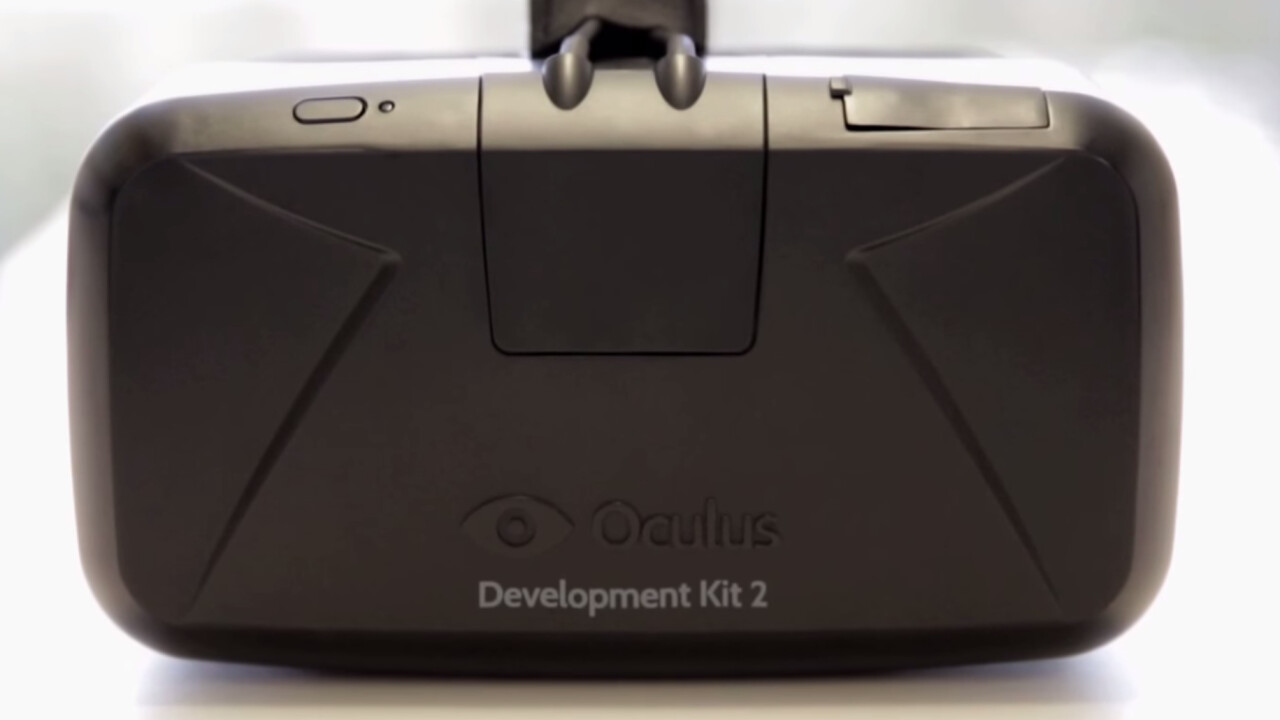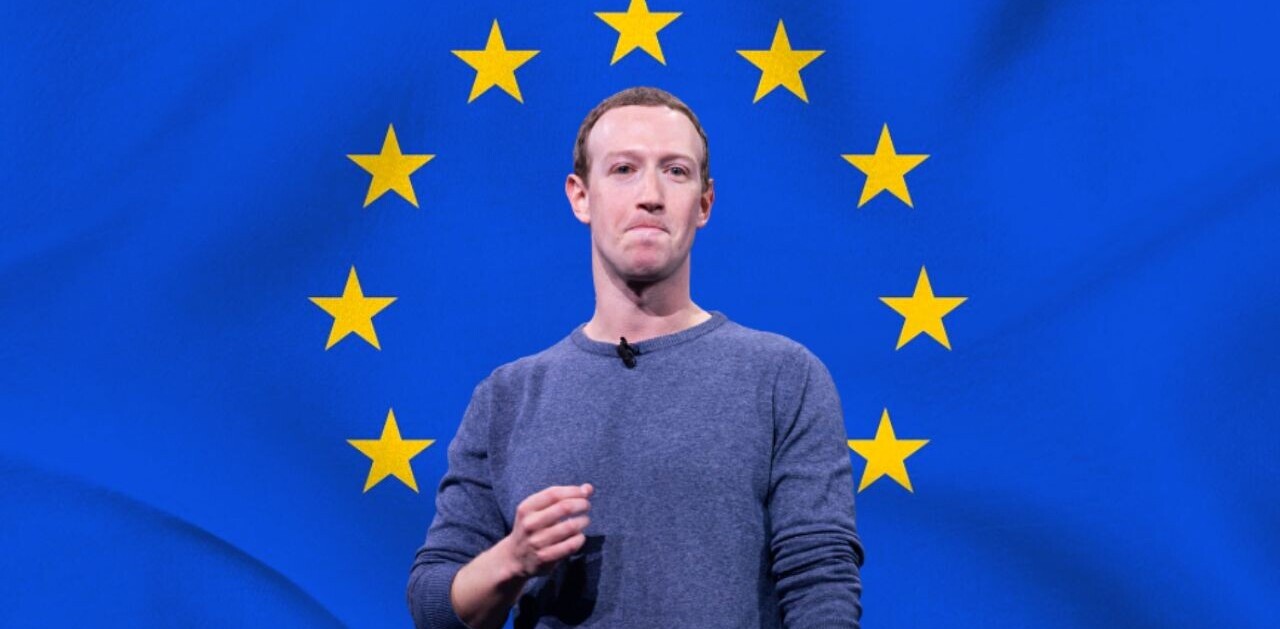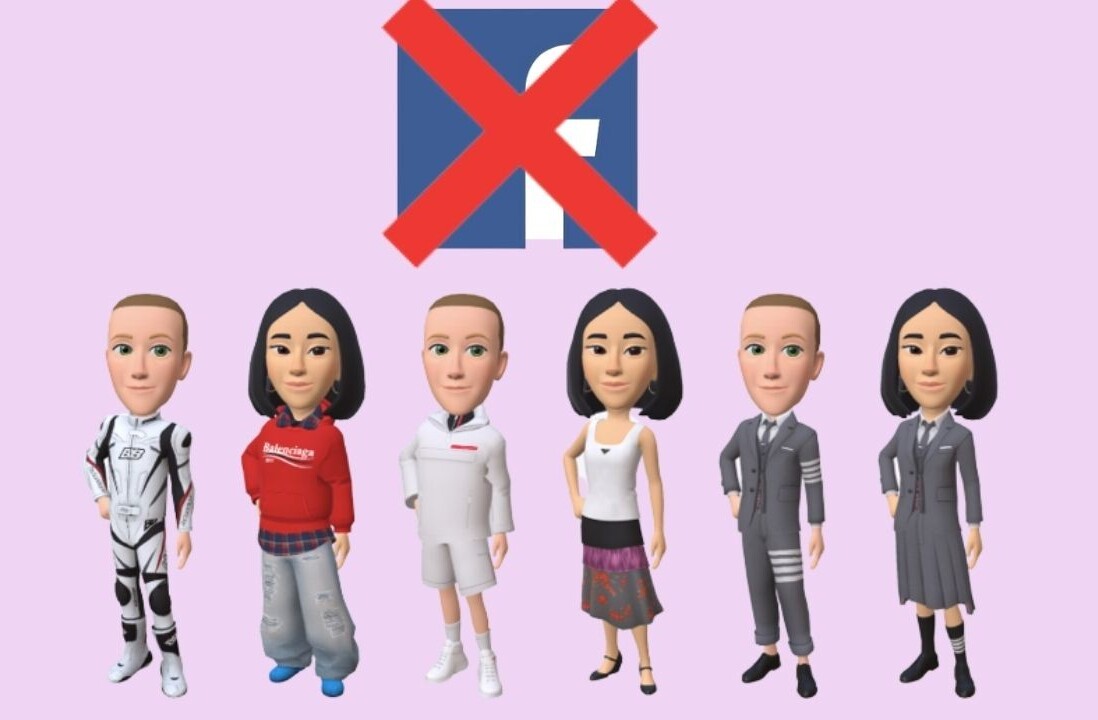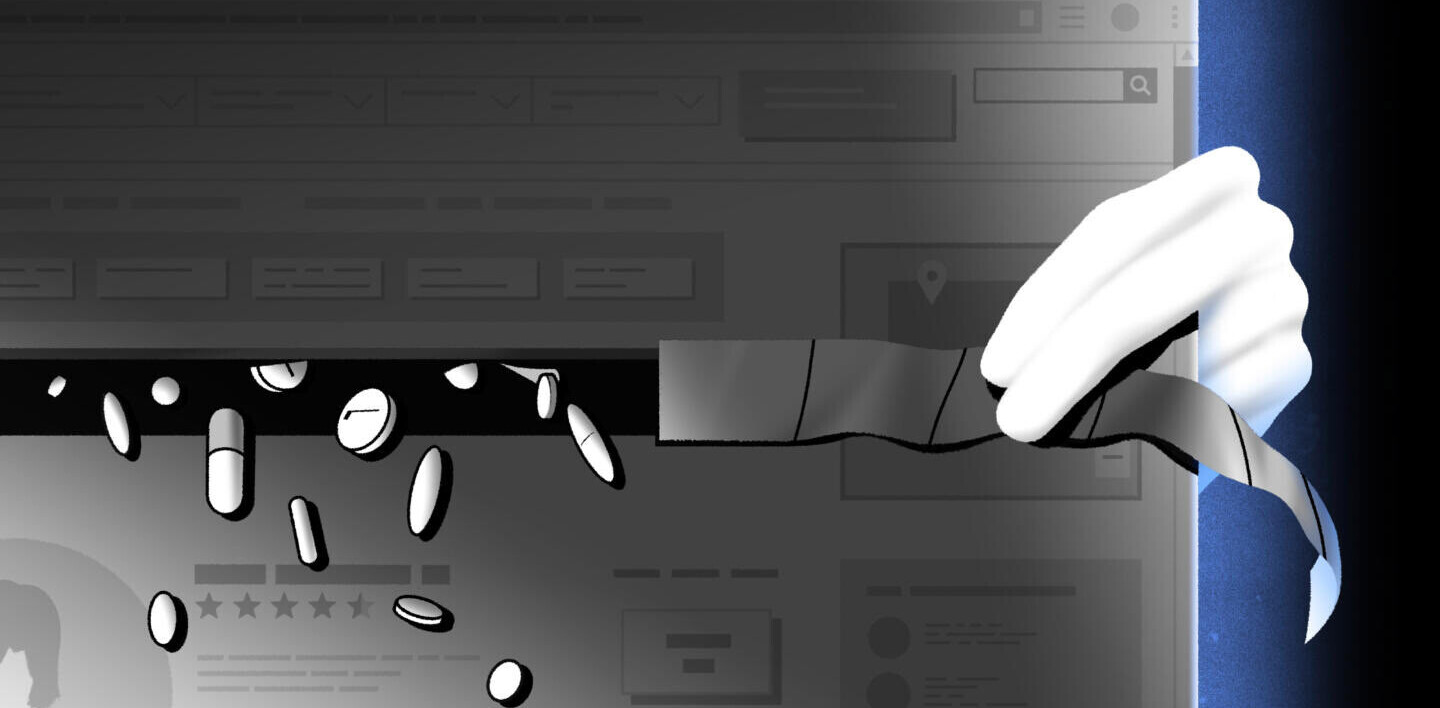
Virtual reality leader Oculus VR is, yet again, the talk of E3. This time around, however, the talk has moved beyond the marvel of its technology and onto new, exclusive content for the headset. We sat down for a group interview with CEO Brendan Iribe to hear more about the future of Oculus and the new role Facebook will play – we also got to try out Playful’s “Lucky’s Tale” game, the first title published by Oculus.
What follows is a condensed version of our conversation.
The Dream Team
Fueled by Facebook’s $2 billion acquisition, Oculus has been on a hiring spree. Last week, the company brought on Jason Holtman, one of the creators of Valve’s Steam service, to build its platform. This week, Oculus announced that Naughty Dog co-founder Jason Rubin will head up its first-party studio efforts.
“Facebook really supercharged our recruitment process,” Iribe said. “It’s great to get the person who built Steam. It’s official, we’re building a platform. Jason Rubin, as the head of worldwide studios, [is] going to be leading our first-party content development. We’re going to spin up a few studios.”
When asked what made him want to come over, Holtman said:
I put a headset on. I’ve known these guys for a while. The moment you go and put one of these headsets on, it’s apparent.
Iribe chimed in that simply trying out the headset has been Oculus’s reoccurring recruitment method. he described the pitch as: “Hey, put this on, take it off, do you want to be part of building the future?”
Over the past few months, Oculus has hired over 40 people as Iribe assembled what he called his “dream team.” The latest batch of hires is a dazzling list, drawing in folks from Google[x], ARM, EA, 343 Studios, Bungie, Nvidia and more.
While some Oculus fans had complained that the Facebook deal might spoil its indie upstart roots, the amount of talent that Oculus has been able to sign because of the acquisition will almost certainly result in an improved and accelerated product.
Feeling Lucky
At it’s heart, Lucky’s Tale is a plucky 3D platformer that uses the VR view as a third-person camera. It’s cute and fun and the game includes a few features to show off the headset’s capabilities, such as using it the head-tracking to aim when throwing an object. You’ll also see other subtle touches throughout the game – Lucky will follow your gaze if you tilt your head while he’s facing you.

Lucky’s Tale is also a departure from many of the VR experiences we’ve seen on Oculus, which have tended toward first-person point-of-view to heighten the immersive perspective of the headset. Lucky’s Tale works because it skips some of the cheap gimmicks that can creep into VR games and focuses instead on bringing the same level of polish and care that you’d see on a traditional game.
Playful and Oculus have been working together since almost the beginning. Words with Friends co-creator Paul Bettner started Playful after leaving Zynga last year and quickly turned his attention to VR. As a high-level backer of Oculus’s original Kickstarter campaign, Bettner brought his team to the Oculus office to meet with the Iribe early on.
“We had a lot of fun right from the beginning talking about VR,” Iribe said. “We gave them early duct tape prototypes. In the end, we gave them 30 different experiences.”
Project Morpheus?
At E3 this year, Sony is coming up in Oculus’s rear-view mirror with its own VR demo of its Project Morpheus PS4 accessory. When I tried the Morpheus’s street luge demo at the show this week, I found the headset to be viable, but not quite as polished as Oculus.
Still, even with Sony getting ready to jump into the VR space, Iribe doesn’t seem too worried.
“We don’t look at Sony as a competitor. We really look at Sony as somebody who’s jumping into the space to help evangelize it. Morpheus is an accessory to their console platform. We are solely focused on VR,” he said.
Challenges
Oculus is still some way from its consumer release. Its Development Kit 2 [DK2] hardware is scheduled for release later this summer. With the latest version, Oculus has managed to overcome one of the key obstacles that held back its initial release.
“The elephant in the room has always been simulator sickness, disorientation,” Iribe said.
He credited Valve with building the first VR experience that “finally cracked the code” with regard to the motion sickness that accompanied earlier headsets.
“Now [simulator sickness is] largely an addressable problem. We still have a lot of work to get there and we will,” he added.
As for other challenges, Iribe said that Oculus is focused on improving the form factor, shrinking it down to be lighter weight, and driving the cost down. Content is also another hurdle for Oculus, as it needs to ensure that its platform has plenty of great experiences for consumers to try out when the headset finally goes to retail.
The question of input also remains an issue for Oculus. When the company demoes its technology now, it uses a traditional gaming controller as input, but that’s one of the weakest links of the experience. One of the first things people do when they try on Oculus Rift is look for their hands. Oculus is currently working on solutions, but the company has yet to announce the primary type of input it will support when it ships the headset.
“We have been R&Ding input for a while. We’ve been trying a whole bunch of stuff…tons of different input devices. It’s something we’re not ready to talk about yet, we’re still figuring it out.”
Slowing experiences
As Oculus and its partners have worked on creating experiences for the headset, experiments have shown that the company needed to start with simple, stationary environments before leaping ahead to fast-paced first-person shooters.
Early on in the development of the headset, iD Software co-founder John Carmack, who eventually became Oculus’s CTO showed off a demo of Doom with the BFG rocket launcher and running down hallways in VR. While the experience seemed promising for gamers, the Oculus team realized that it was too much to start out with.
“Within a few seconds of trying it, we thought, ‘That’s pretty intense and maybe we need to slow this down a lot,’” Iribe said. “Over the last two years, we’ve been slowing down the experiences and making them more comfortable.”
While companies like Virtuix are making treadmills for VR use, Oculus wants to promote its headset as a “seated experience.”
“We felt it was better to message to the community to stay seated,” Iribe noted. “We even joked that maybe we should be shipping seat belts with this.”
Development Kit 2
Interestingly, Iribe noted that the number of DK2 preorders has already surpassed the volume of DK1 devices Oculus shipped out during the version’s lifetime. If you’re ready to take the plunge, you can pre-order DK2 for $350.

Iribe promised that the consumer version will be “another really big leap” from DK2 when it arrives. He wouldn’t provide an estimated shipping date for the consumer release, but he did say that it’s hopefully “not far away.”
The Facebook/Oculus deal came as a surprise to many fans, who found a social networking company to be an odd fit for VR. However, Iribe said that no other company was as excited to work with Oculus as Facebook was.
“Mark Zuckerberg stayed super enthusiastic. We didn’t see that with Google or Microsoft,” he said. “Facebook will get fully behind us and back this as the next computer platform.”
According to Iribe, members of the gaming industry have approached him to say that the deal is going to be “very meaningful to gaming.”
One area where Facebook can lend its expertise is helping to build a Metaverse, the term for a social virtual world first pioneered by Neal Stephenson in his novel Snow Crash. Iribe continued:
One of the reasons we looked at this partnership was the infrastructure Facebook has. They have this incredible network that would take us a long time to build out. They’ve been focused on security and privacy for a decade now.
They’ve built out the world’s largest social network. In general, they’re people you know, people you’ve met in life. In VR, if you take this step forward, you’re going to go out and have this face-to-face experience, gaming in the Metaverse, you’re probably going to do it with your friends to start, then maybe with some new friends that you meet in in the Metaverse. Having Facebook understand what that means, is going to be very, very meaningful.
Even so, Iribe reiterated that the company is free to use and not use what it wants. “We’re staying largely independent,” he said.
Gaming first
Iribe noted that Oculus is focused first on gaming at the moment, in part because the best 3D engines have been created by the gaming industry. However, he does expect education to also be a significant area for Oculus use.
“We have a big plan on supporting academia, universities, and going out to help evangelize virtual science in academia and research,” he said.
The future of VR
“As the technology gets really good, there will be a day, some decade, where all of this is possible in a pair of sunglasses,” Iribe speculated. “There will be a billion plus people in there. It will be awesome; there will be a new set of worlds that we’re able to enjoy. It’s limitless.”
Iribe compared VR to online multiplayer games that have become immersive for gamers even in 2D on a monitor:
When you think about this pursuit of virtual presence, Eve Online and World of Warcraft, they’re doing this incredible job trying to create this believable world. For some people, this world really exists. People are thinking about it and trying to convince their brain that it’s a real place, but their brain is saying, “No, it’s on a monitor, on a 2D screen, in a box.”
Now for the first time with VR, you’ll put on a headset where you get the true sense of presence where your brain is saying this is real and you’re there going, ‘No, no, this isn’t real.’”
You can only do it with VR. That is such a huge phase change. Now, getting back to it, a place like Eve Online can become a real place. Your brain remembers it as a real place. That’s going to be incredible. I think that will have a really big impact.
What really inspired me around VR, the very first demo, was the creative thoughts I had of what this was going to enable, what people were going to create. ‘What if you made this? What if you made that?’ I felt that way, and then, even more important and more powerful, I took it around as a duct tape prototype showing Unity, Epic, Valve, and suddenly every single person had the same reaction. Everybody had an idea that came out of the experience and it’s only gotten even more compelling and even more powerful as we’ve gone on and encouraged more creativity.
When you put on Oculus, people are just streaming with ideas, dreaming about things. That’s why I think this will be the most powerful platform of all time. I think everybody’s got an idea about it.
Get the TNW newsletter
Get the most important tech news in your inbox each week.




